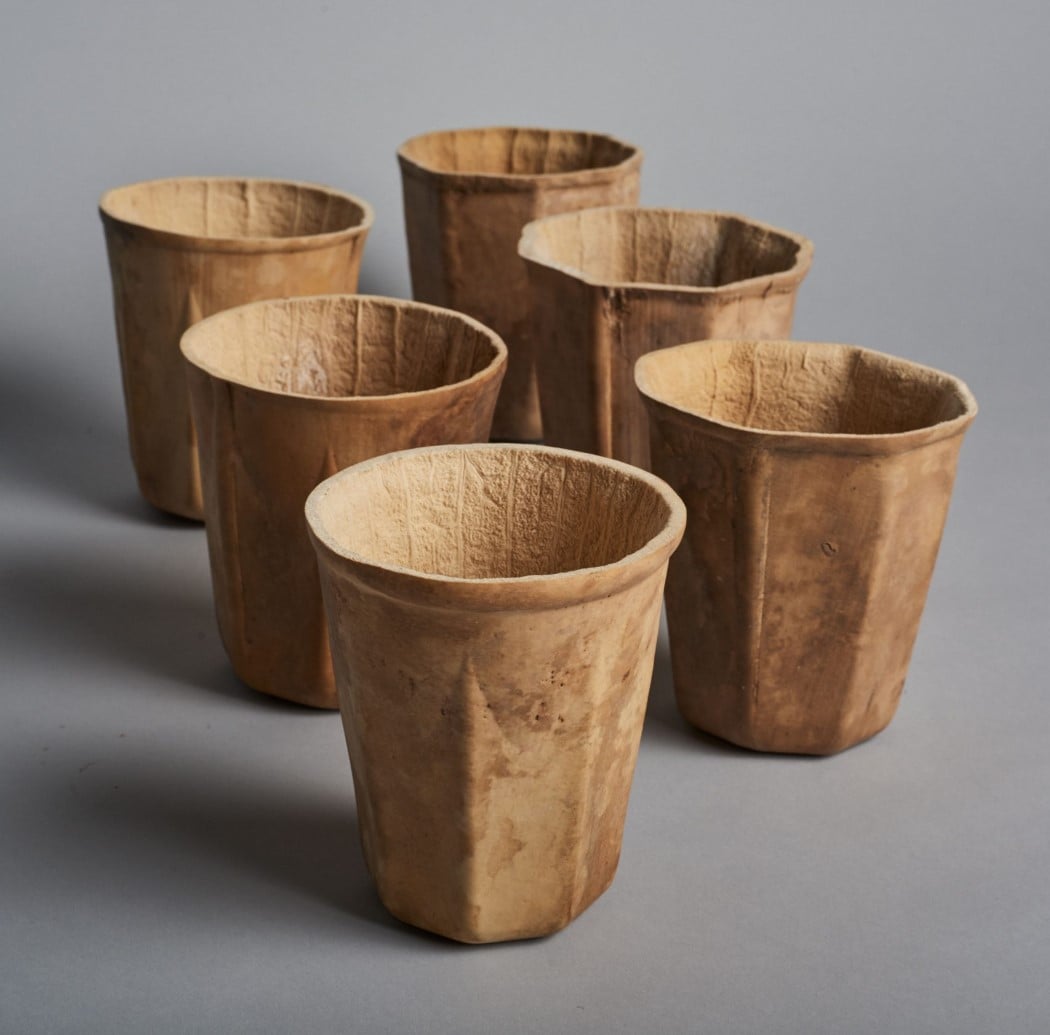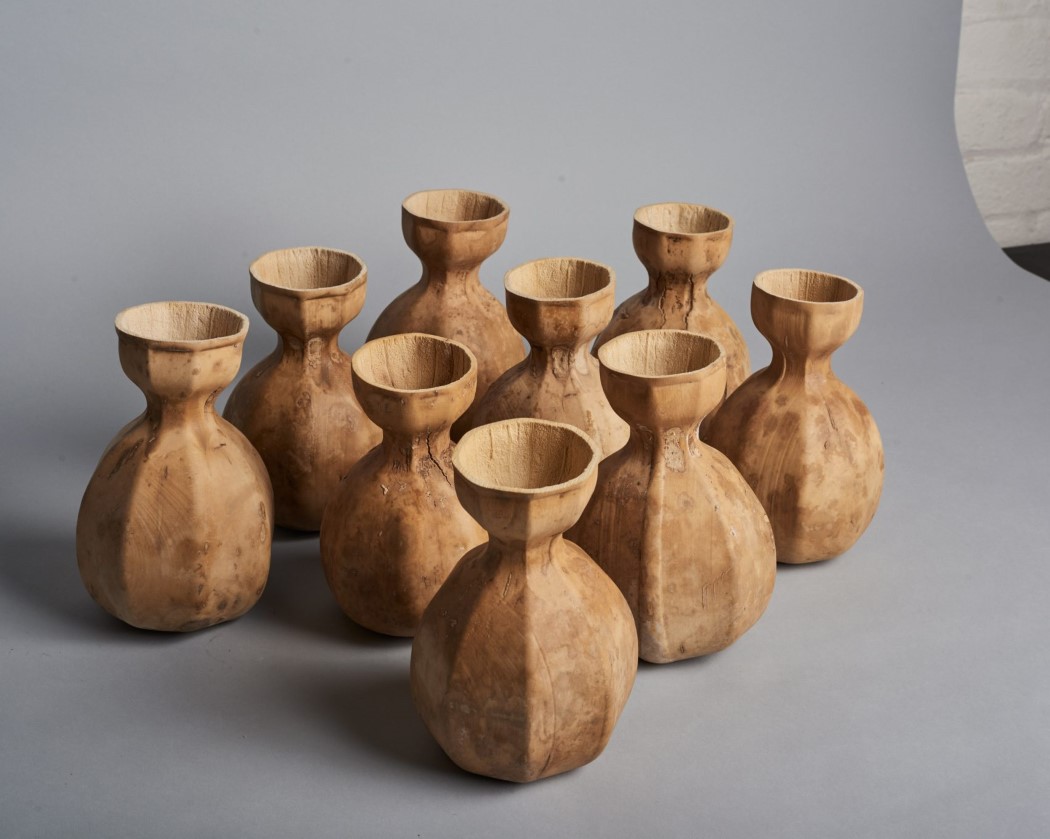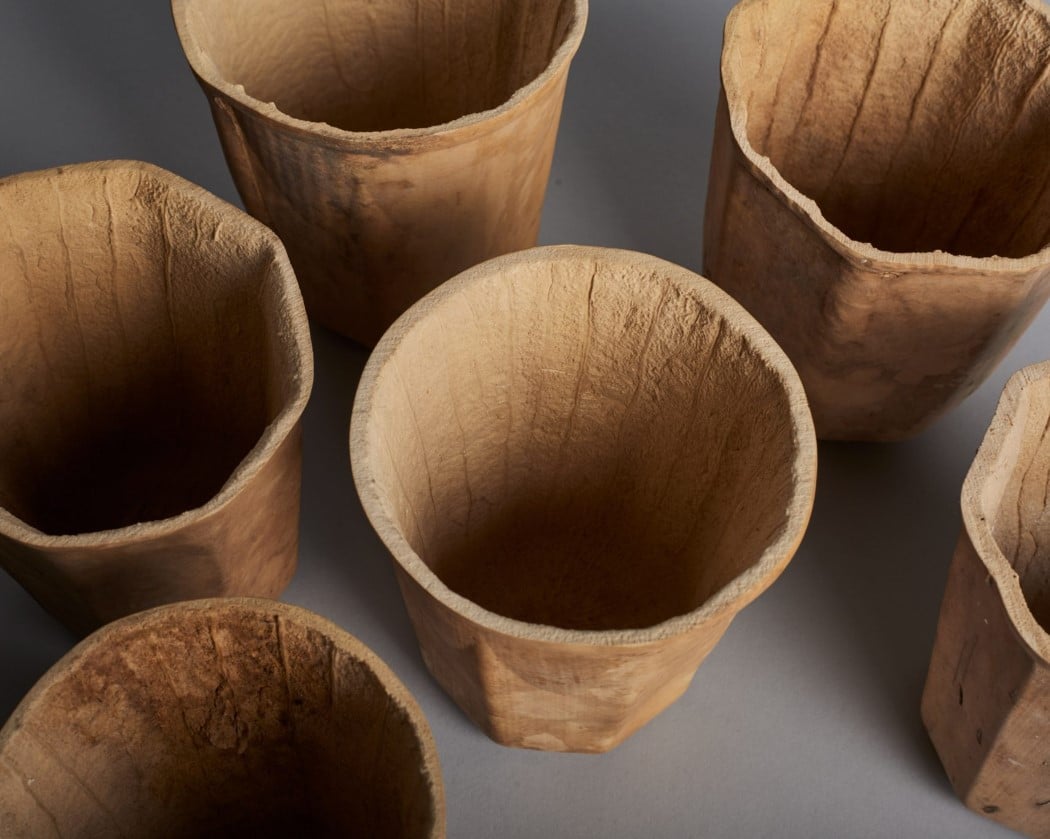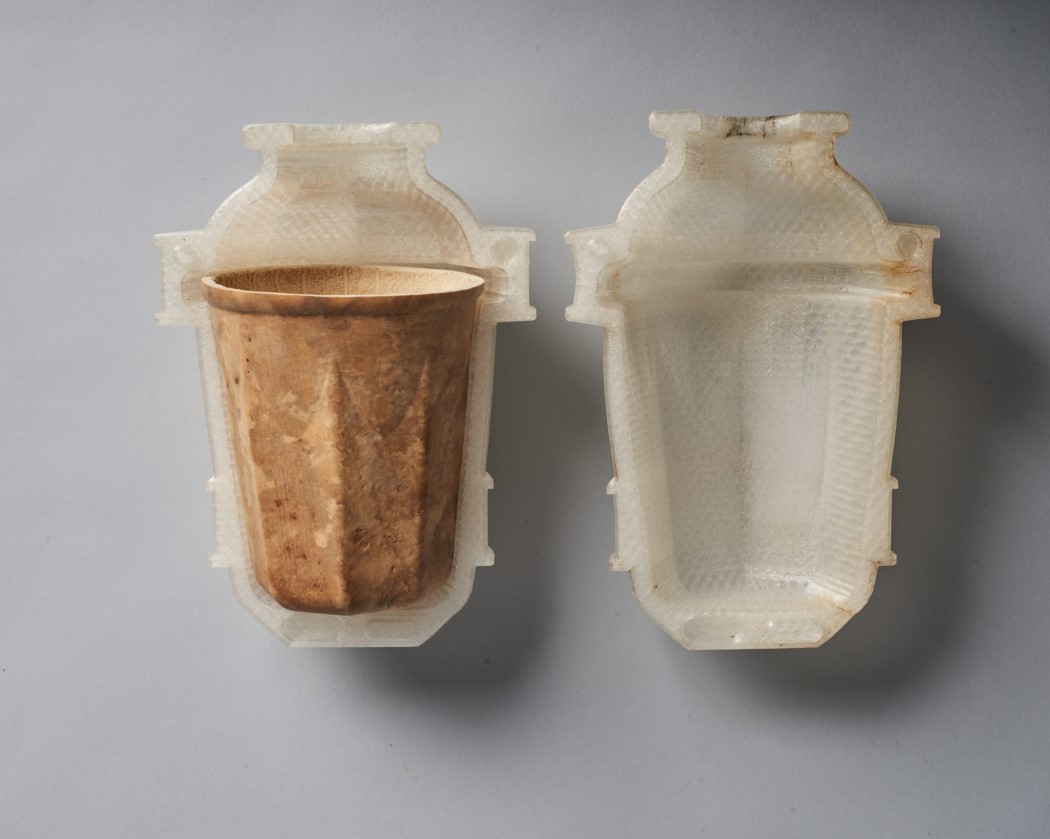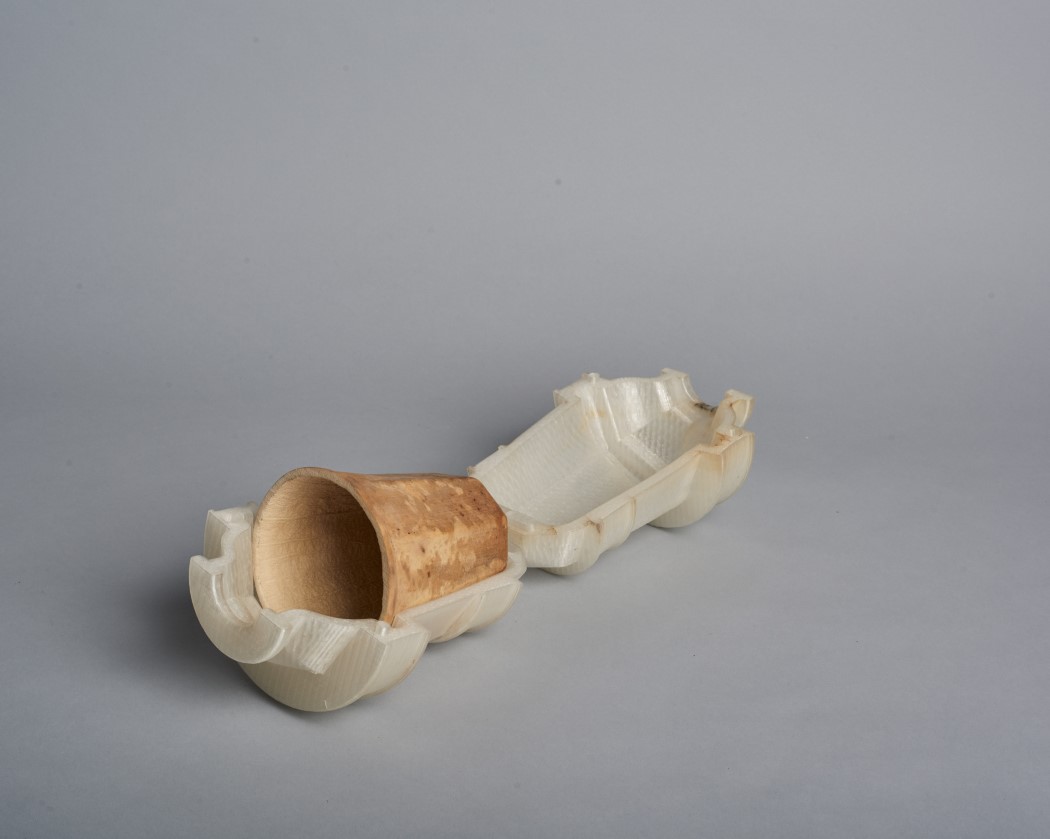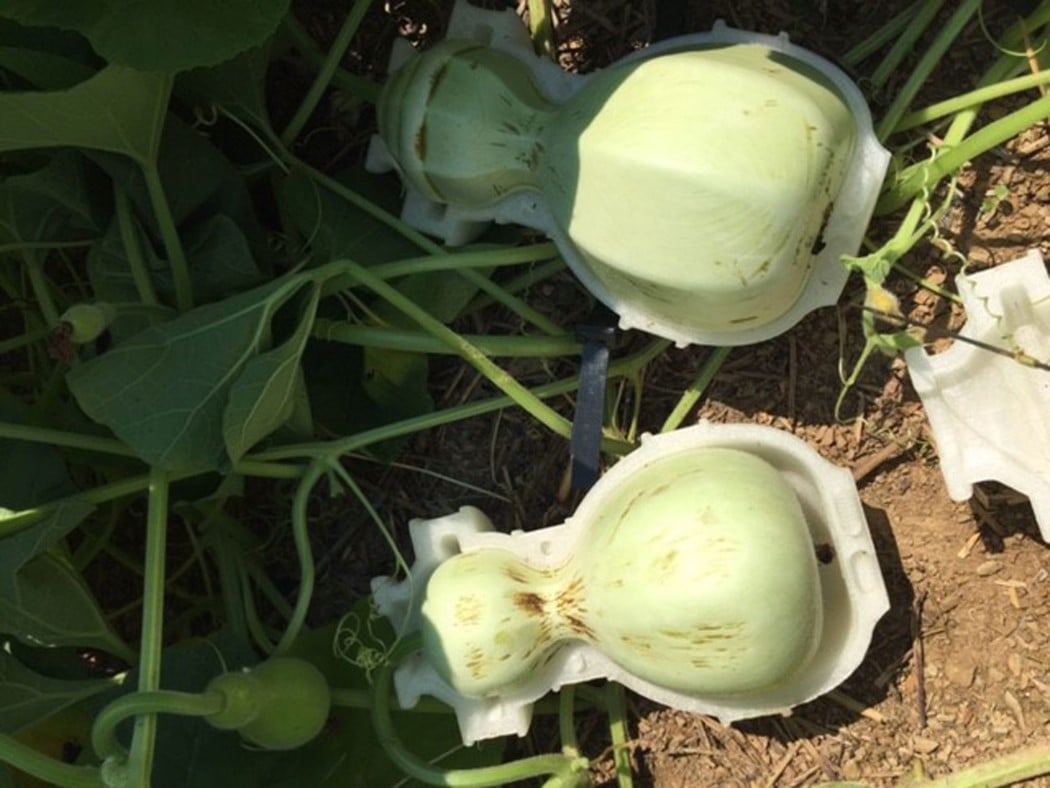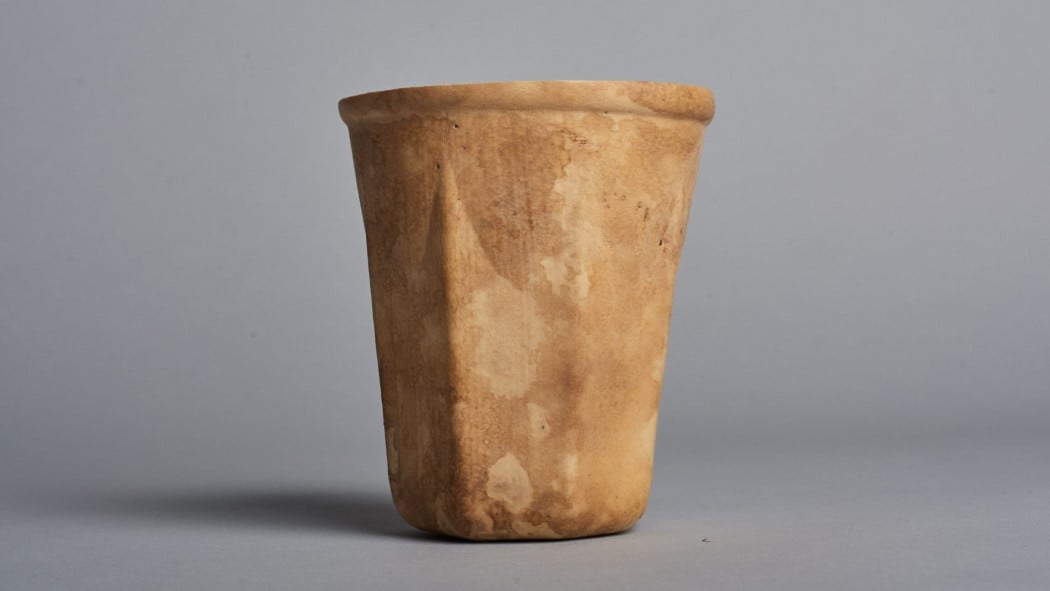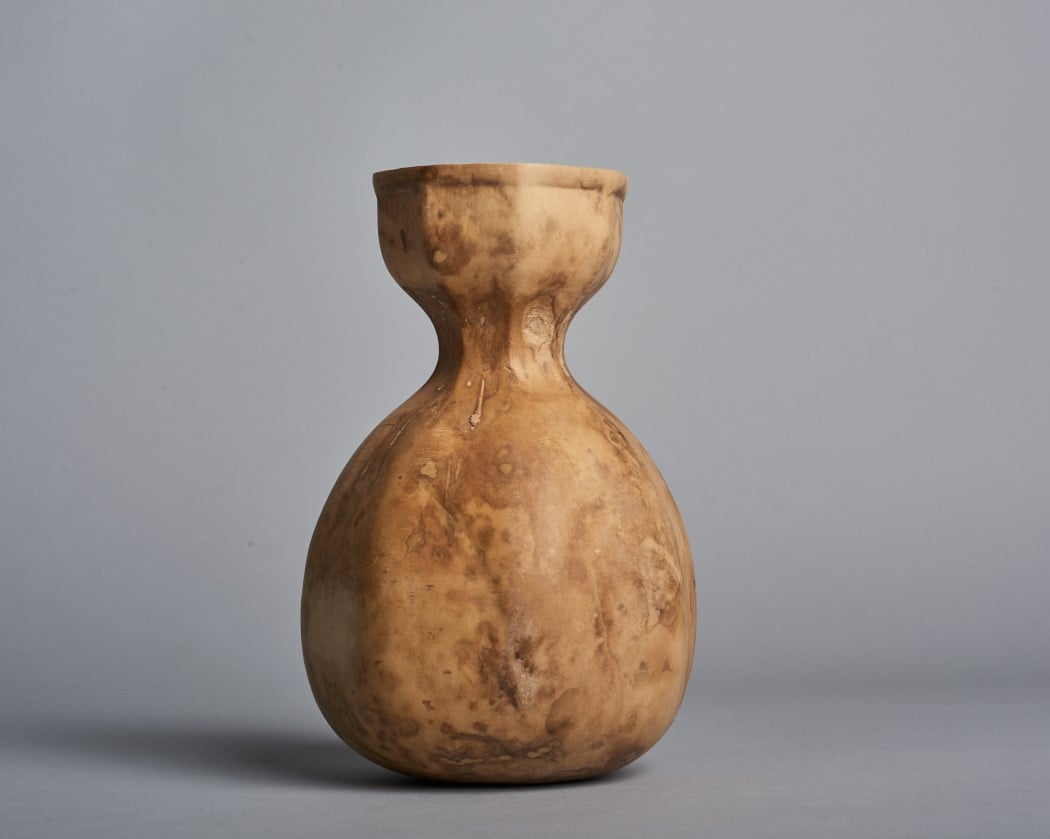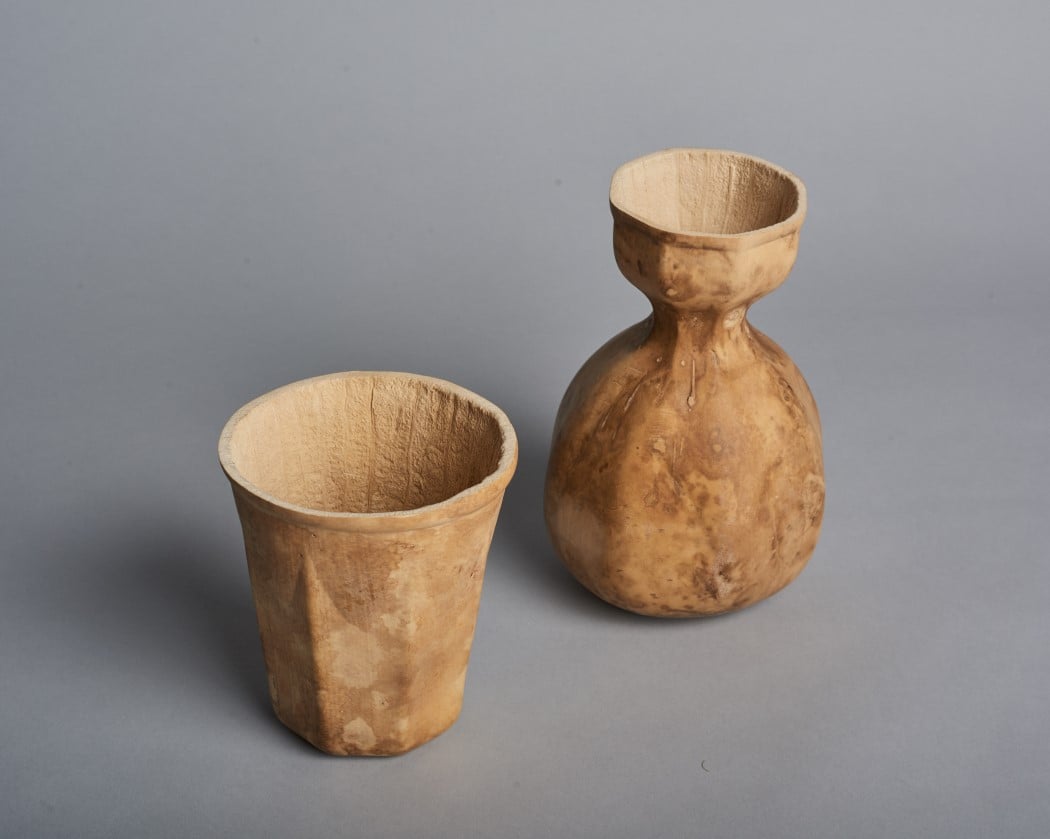
I remember one snarky image that made its rounds around the internet. It featured peeled oranges stored in plastic containers, with a caption that read “If only nature could find a way to cover these oranges so we didn’t need to waste so much plastic on them”. It seemed like a glorious act of stupidity, that someone at the supermarket would peel fruits, discarding their natural packaging, and then store them in man-made plastic boxes… so Brooklyn-based design studio Crème did the exact opposite.
Crème chose to reverse the process, forming fruits into containers, rather than the opposite (storing fruits in them). Using the easy-to-grow and tough-when-dry gourd, Crème created specialized 3D-printed molds that allowed the gourd to grow in certain shapes. Gourds are fast-growing plants that bear robust fruit each season. Once dried, the gourds’ strong outer skin and fibrous inner flesh becomes watertight, explaining why they’ve been used for centuries as water-storage and drinking vessels.
Crème has devised a method of mass-growing these gourds, forming them into glasses and carafes, using 3D printed molds that limit the growth of the gourd and give it shape (the Japanese do the same with watermelon, making them cubical and therefore easy to pack). Once the gourd dries out, the mold is opened, the fruit is cut, and its insides cleaned. You’re left with the HyO-Cup… a product that’s watertight, and formed with a surprising amount of accuracy. If the molds are designed well, you can achieve any shape, making stylized containers, or even more functional, stackable designs. Once done, instead of going into a landfill, the HyO-Cups go into a composting pit!
Designer: Crème
